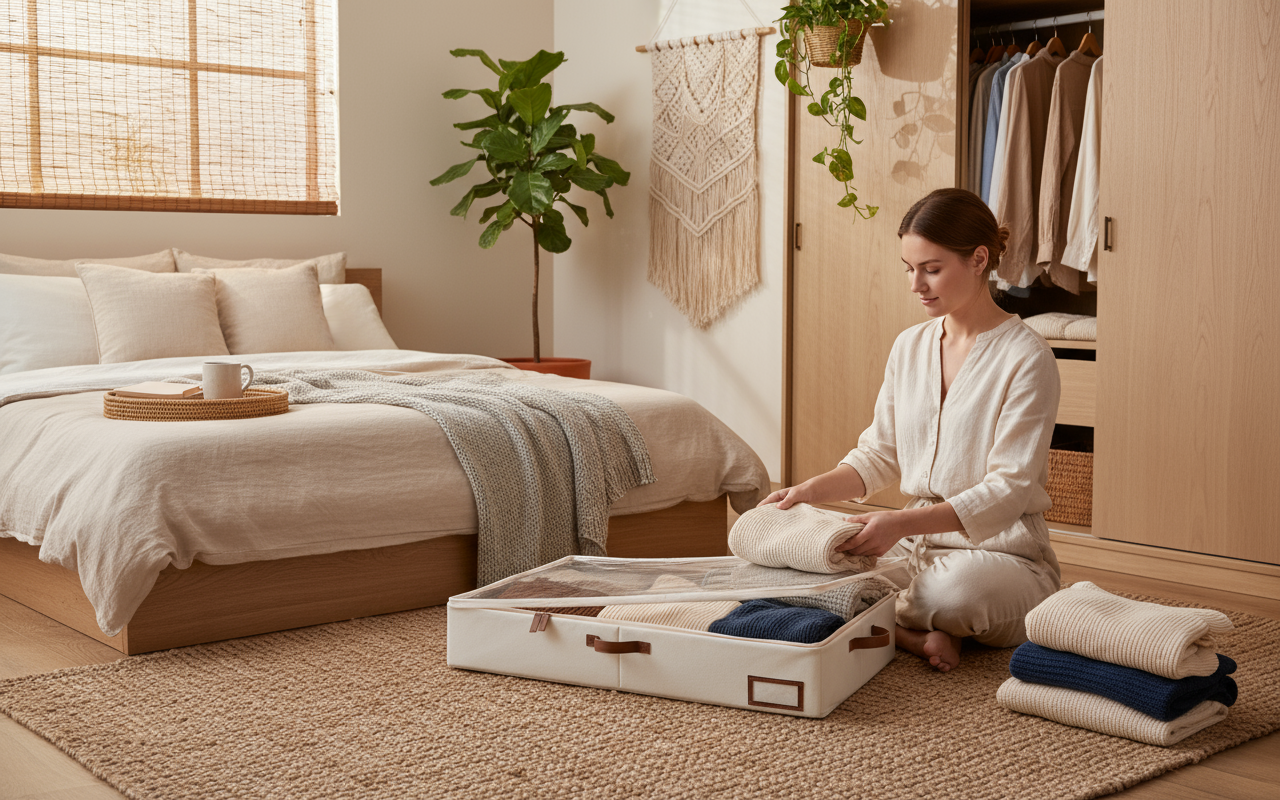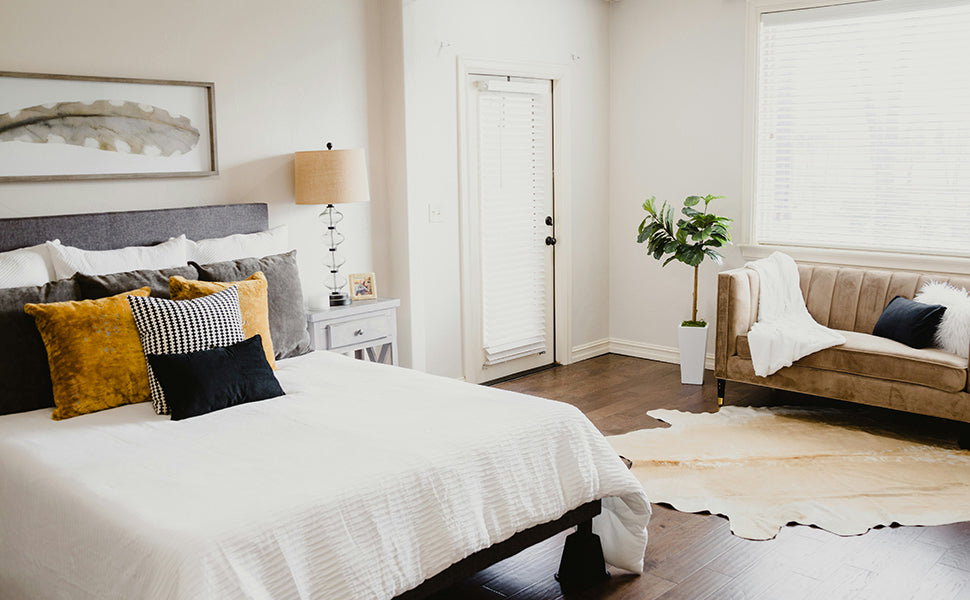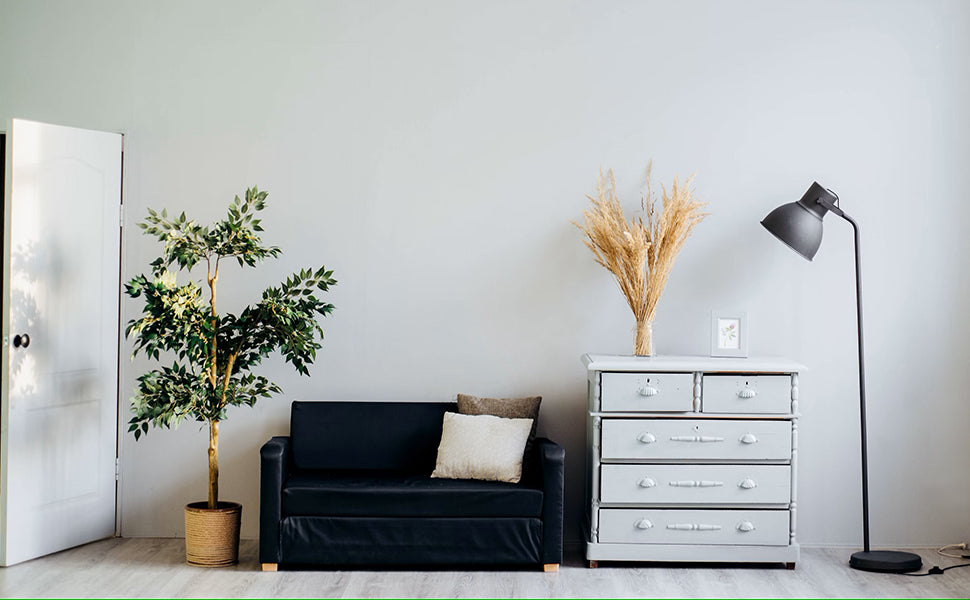STORAGEWORKS - December 27, 2024
12 ADHD-Friendly Ways to Get Organized Easily
Living with ADHD often means juggling a whirlwind of thoughts and tasks. While organization may feel overwhelming, creating a system that works for you can reduce stress and make daily life smoother. Here are some ADHD-friendly organizing tips to help you take control of your space and time:
1. Use Transparent Bins with Labels

All these hanging organizers feature strong boards to support the weight of your belongings safely and to keep the shelves from losing shape. They also have useful side pockets to hold your smaller items while giving you easy access to the contents. The elegant, minimalist style means they can be employed openly, and they will blend into your decor with ease. Ideal for storing sweaters, shirts, knitwear, pants, handbags, shoes, hats, socks, ties, etc. Also, they are all collapsible, meaning that they can be easily stored when not in use.
Out of sight, out of mind is a common challenge for those with ADHD. Transparent storage bins make it easy to see what’s inside, and simple labels (like “Office Supplies” or “Charging Cables”) eliminate the guesswork when locating items.
2. Break Down Tasks into Small Steps
Instead of tackling an entire room, focus on one small area at a time, such as a single drawer or your desk. Use a timer to work in 15-20 minute intervals to stay focused and prevent burnout.
3. Designate a “Home” for Every Item
Assign every item a specific place to live. Keys go on a hook by the door, notebooks in a file holder, and chargers in a labeled drawer. This reduces the frustration of hunting for misplaced essentials.
4. Incorporate Color Coding

Color coding can simplify organization and decision-making. For example, use red for urgent documents, blue for recreational items, and green for bills or finances. It’s a quick visual cue that reduces mental clutter.
5. Opt for Open Storage Solutions
Open shelving and lidless storage baskets make it easier to access and return items. If the thought of opening a lid feels like too much, open storage is your friend! For instance, an open shoe rack in the entryway encourages you to keep things tidy without extra effort.
6. Declutter Regularly to Keep Things Simple

ADHD brains thrive in a clutter-free environment. Set a recurring reminder to declutter monthly, focusing on one area at a time, like your closet or desk. Donate or discard items you no longer use to keep your space manageable.
7. Rely on Visual Cues
Visual reminders can be a lifesaver. Use sticky notes, checklists, or even signs around the house to remind you of tasks like “Return Items to Their Place” or “Organize for 5 Minutes.” These prompts can keep you on track without adding mental strain.
8. Create a “Miscellaneous Zone”
Uncategorized items often derail organizing efforts. Designate a specific bin or drawer for these odds and ends, but make it a habit to sort through them regularly to prevent overflow.
9. Store Items Near Their Usage Areas

Reduce distractions by keeping items close to where you use them. Cleaning supplies should be stored in the bathroom or kitchen, while work files stay near your desk. This minimizes the effort needed to put things away.
10. Adopt the “5-Minute Rule”
Take five minutes each day to tidy up a small area, such as your nightstand or kitchen counter. This practice builds a habit of maintenance and prevents clutter from piling up.
11. Use Technology to Your Advantage

Apps like Todoist, Notion, or your phone’s built-in reminders can help you stay on track. Set daily alerts for tasks like “Return Items to Their Place” or “Declutter for 10 Minutes.”
12. Find Your Rhythm
Some people with ADHD are more focused in the morning, while others have bursts of energy in the evening. Work on organizing tasks during your peak times to maximize productivity and minimize frustration.
Conclusion
Organizing doesn’t have to be a daunting chore. By implementing these ADHD-friendly strategies, you can create systems that work for you, reduce decision fatigue, and bring a sense of calm to your daily routine. Remember, progress is more important than perfection—start small, and celebrate each step toward a more organized life!




